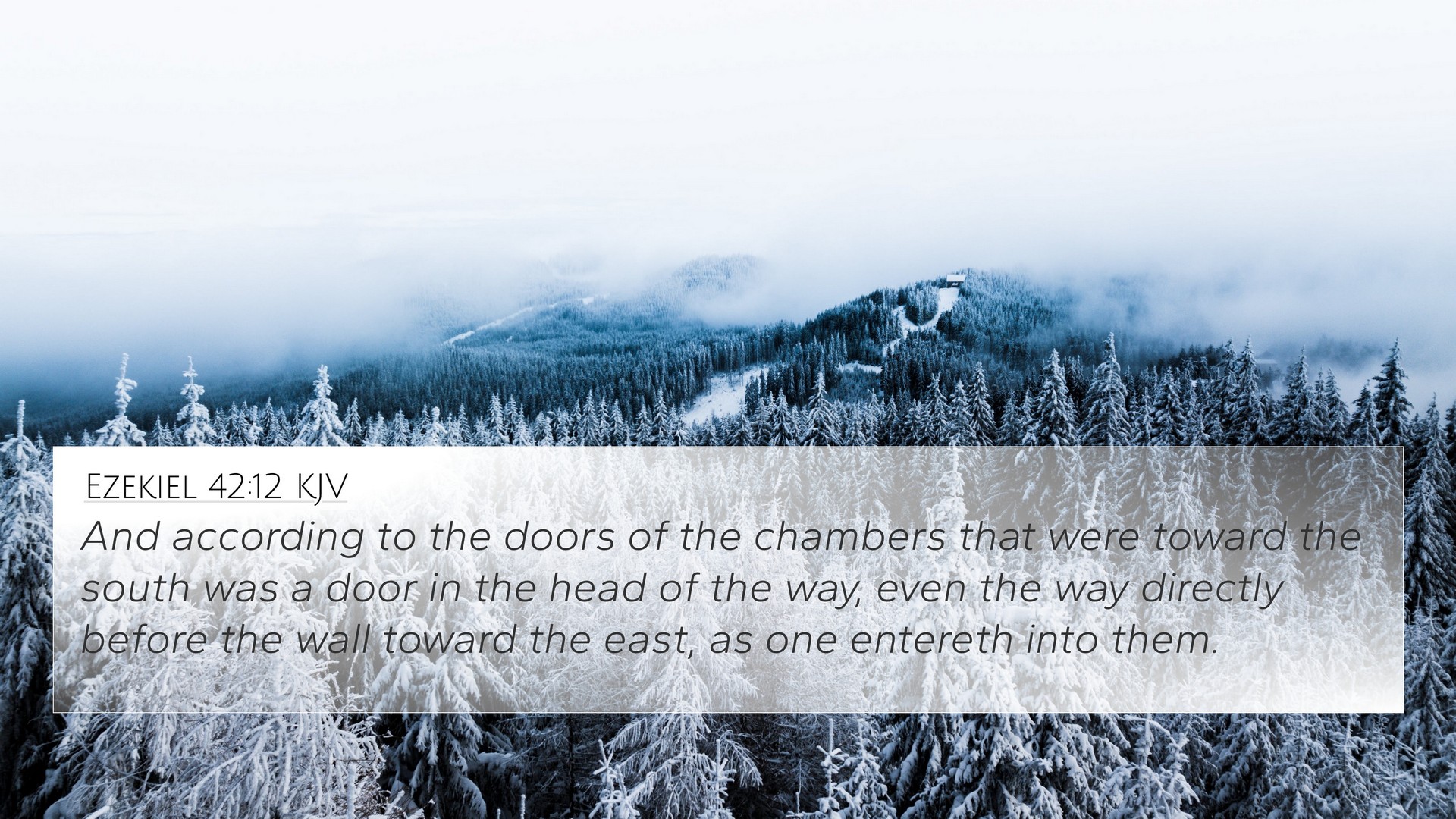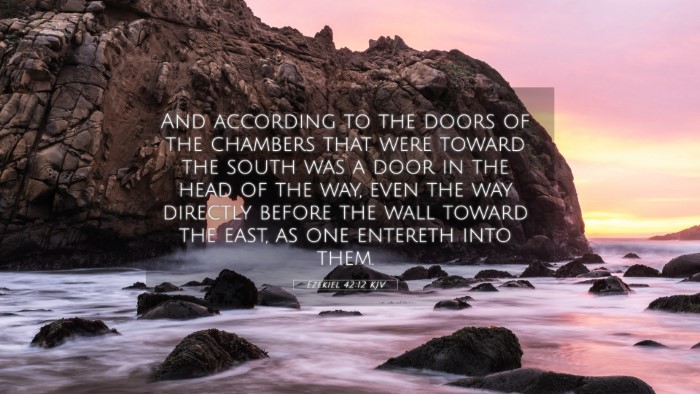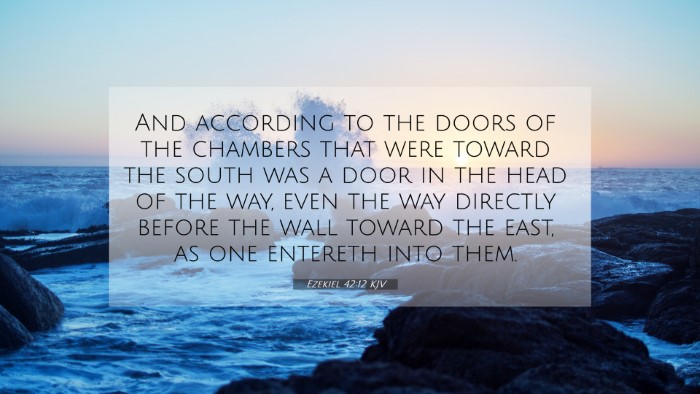Ezekiel 42:12 - Meaning and Interpretation
Ezekiel 42:12 states: "And according to the measure of the houses of the priests,
so shall be the measure of the great court before the temple: there shall be
a separation between the holy and the profane."
This verse conveys profound insights into the organization and sanctity of the Temple
precinct. The separation between the holy and the profane signifies the careful distinction
that must be maintained in worship and service to God. Below, we will explore a summary
of its meanings, referencing insights from prominent public domain commentators such as
Matthew Henry, Albert Barnes, and Adam Clarke.
Commentary Insights
-
Matthew Henry:
Henry emphasizes the importance of maintaining boundaries in sacred spaces.
The distinction between holy and unholy reflects God's holiness and the reverence
that must accompany worship. He notes that this separation illustrates God's desire
for His people to live in a way that honors Him.
-
Albert Barnes:
Barnes points out the practical arrangement of the Temple's structure. The designated
measurements for the priests' houses and courts highlight the orderly nature of
worship. He relates this design back to God's divine order, suggesting that spiritual
lives should mirror this intentionality and respect for the sacred.
-
Adam Clarke:
Clarke interprets the verse as establishing principles of separation that extend
beyond physical boundaries. He argues that spiritual discernment is necessary to navigate
what is acceptable in the presence of God. Clarke discusses how these principles apply
to modern believers, urging them to reflect on what they allow into their spiritual lives.
Bible Cross-References
To further understand Ezekiel 42:12, we can find links and connections through other
scripture passages. Below are notable references that relate to this verse:
- Leviticus 10:10-11: Addresses the importance of distinguishing between the holy and the common.
- Hebrews 12:14: Urges believers to pursue peace and holiness, emphasizing God's standards for living.
- 2 Corinthians 6:17: Commands the faithful to separate themselves from unclean things.
- Ezekiel 44:23: Discusses the priests' responsibilities in teaching the difference between the holy and the profane.
- Revelation 21:27: Highlights that nothing impure will enter the New Jerusalem, reinforcing the concept of holiness.
- 1 Peter 1:16: Calls believers to be holy, as God is holy, reflecting the necessity for purity in worship.
- Isaiah 52:11: Encourages the people of God to depart from unclean places in their quest for holiness.
- Matthew 5:8: States, "Blessed are the pure in heart, for they shall see God," connecting purity with access to God.
- Psalm 24:3-4: Asks who can ascend the hill of the Lord, emphasizing the need for clean hands and a pure heart.
- Romans 12:1-2: Encourages offering our bodies as living sacrifices, holy and pleasing to God, implying a separation from worldly practices.
Thematic Connections
The thematic connections highlighted through these cross-references reveal a consistent
Biblical motif emphasizing holiness, separation, and reverence in the context of worship.
Not only does Ezekiel 42:12 serve to establish physical boundaries for worship, but it also
reflects deeper spiritual truths that reverberate throughout scripture.
Importance of Cross-Referencing
Cross-referencing Biblical texts provides tools for in-depth Bible study. It allows believers
to unveil connections between varied scriptures, creating a comprehensive understanding of
themes and doctrines. By exploring how verses relate to one another, individuals can engage
in detailed analysis of Biblical teachings, enhancing both personal and communal study experiences.
Conclusion
In conclusion, Ezekiel 42:12 serves as a reminder of the importance of maintaining sacredness
in worship, a principle that is supported and echoed throughout the entirety of Scripture.
By looking at related verses, believers can derive a fuller understanding of God's expectations
for holiness, guiding their paths in accordance with His will.
Additional References for Study
- Utilizing a Bible concordance helps in discovering cross-references.
- A Bible cross-reference guide can simplify the process of finding relevant scriptures.
- Engaging in cross-reference Bible study can deepen understanding of complex themes.
- Various Bible reference resources can assist in connecting similar teachings across texts.
- Employing cross-referencing Bible study methods allows for systematic approaches to Scripture analysis.


